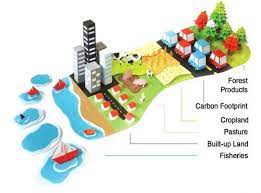
Introduction
The ecological footprint of cotton t-shirt production is a critical aspect of the fashion industry. This presentation aims to assess the environmental impact of cotton tshirt production and explore potential solutions to reduce its ecological footprint.
COTTON CULTIVATION
Cotton cultivation involves extensive use of water, pesticides, and fertilizers. The environmental impact of cotton cultivation extends to soil degradation and water pollution, making it a significant contributor to the ecological footprint of cotton tshirt production.
GARMENT PRODUCTION
The garment production phase involves cutting, sewing, and finishing processes, each of which contributes to the ecological footprint. Waste generation, energy consumption, and transportation emissions are key factors to consider in assessing the environmental impact of cotton t-shirt production.
CONSUMER BEHAVIOR
Understanding consumer behavior is essential in evaluating the ecological footprint of cotton t-shirt production. Factors such as fast fashion, overconsumption, and disposal habits significantly impact the environmental sustainability of cotton t-shirt production. Understanding consumer behavior is essential in evaluating the ecological footprint of cotton t-shirt production. Factors such as fast fashion, overconsumption, and disposal habits significantly impact the environmental sustainability of cotton t-shirt production.
CONCLUSION
Assessing the ecological footprint of cotton t-shirt production reveals the significant environmental impact of the fashion industry. By adopting sustainable practices and promoting responsible consumer behavior, we can work towards reducing the ecological footprint and creating a more environmentally conscious approach to cotton t-shirt production.
Thodoris Touloumis,A5

